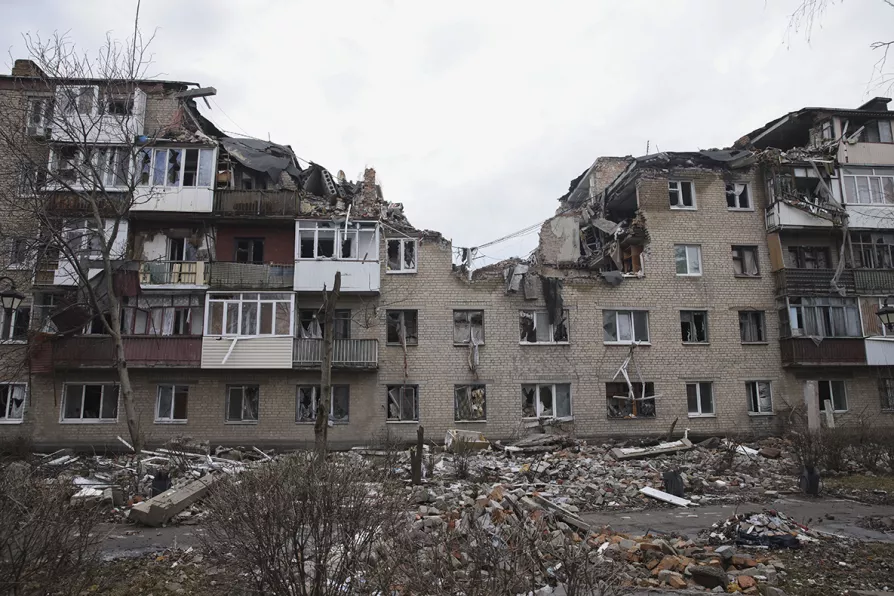Does widespread and uncontrolled use of AI change our relationship with scientific meaning? Or with each other? ask ROX MIDDLETON, LIAM SHAW and MIRIAM GAUNTLETT

 A view of the town of Bakhmut, the site of the heaviest battles with the Russian troops, Donetsk region, Ukraine, Monday, February 27, 2023
A view of the town of Bakhmut, the site of the heaviest battles with the Russian troops, Donetsk region, Ukraine, Monday, February 27, 2023
PREDICTABLY enough the first anniversary of Russia’s invasion of Ukraine provided the media with a hook on which to hang a barrage of war propaganda.
Over recent weeks US officials – State Department and some Pentagon – have been trying hard to sustain a narrative that China is likely to supply Russia with weapons.
This is at a piece with the broad US strategy of leveraging the conflict in Ukraine to boost an Atlanticist project to trap Europe in a more antagonistic relationship with China.

US tariffs have had Von der Leyen bowing in submission, while comments from the former European Central Bank leader call for more European political integration and less individual state sovereignty. All this adds up to more pain and austerity ahead, argues NICK WRIGHT

Washington plays innocent bystander while pouring weapons and intelligence into Ukraine, just as it enables the Gaza genocide — but every US escalation leaves Ukraine weaker than the neutrality deal rejected in 2022, argue MEDEA BENJAMIN and NICOLAS JS DAVIES

In the first half of a two-part article, PETER MERTENS looks at how Nato’s €800 billion ‘Readiness 2030’ plan serves Washington’s pivot to the Pacific, forcing Europeans to dismantle social security and slash pensions to fund it










